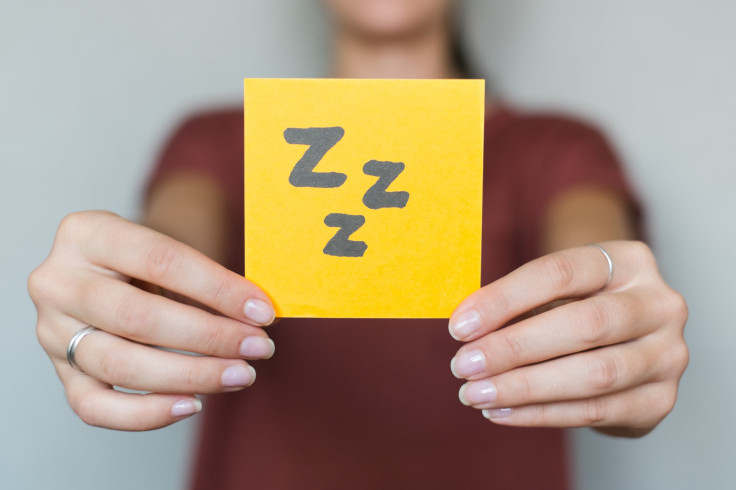National Sleep Awareness Week 2015: Sleep Deprivation Epidemic Driven By Common Misconceptions

Sleeping keeps humans alert and ready for the 9-to-5. Whether that rest fuels them for work, school, or parenting, it is essential to daily function, performance, and even appearance. During Sleep Awareness Week 2015, the National Sleep Foundation’s trying to drive the broken-record medical advice to the public: Get more sleep.
Humans need between eight and 10 hours of uninterrupted sleep to work at optimal level throughout the typical busy and overworked life of an American. Today’s parents value their child’s sleep higher than their own when it comes to how they think it’ll affect their mood, health, performance at school, and behavior, according to the National Sleep Foundation’s (NSF) recent findings. In fact, 69 percent of parents voted the quality of sleep had a direct effect on their child’s ability to perform at school, while only a little over half thought sleep had an effect on their own performance. Sleep problems persist throughout the country because they haven’t been reinforced as an important pillar of health, even though it’s one of the three: exercise, diet, and sleep.
It’s only one of many misconceptions parents and the rest of the adult population have on sleep. Most do not realize sleep is now on the forefront of America's health issues, as it's reached levels of epidemic proportions. Researchers are therefore studying the intricacies of brain functions, immune system, respiratory, cardiovascular, blood pressure, appetite, and mental and emotional health, in order to better understand the culprit of an individual’s desperation for sleep quality and quantity.
According to the NFF’s 2013 International Bedroom Poll, the amount of sleep the average person logs each night has been steadily decreasing over the past cfentury. The average American now sleeps six-and-a-half hours a night during a typical five-day work week. Many people aren’t able to fall into REM (rapid eye movement) the fourth, deepest, and most important phase of sleep long enough. During this phase, which accounts for 25 to 30 percent of the overall four-stage sleep cycle, the body creates new proteins and stimulates the learning region of the brain.
Sleep takes up about a third of a human life, which means the average person who lives to be 90 years old will spend over 30 years of that life asleep. Yet, it was only in 1990 that the National Sleep Foundation, an independent nonprofit organization, was established in order to collect and educate sleep research for the general public and for practitioners to gather information. It took the National Institutes of Health three more years until it was ready to open the National Center on Sleep Disorders Research branch in 1993. The center was established to fill the demand for research funding for a growing population of Americans living with sleep problems and disorders, according to Harvard School of Sleep Medicine.
But why have people allowed decades of their life to go unexamined for so long? It’s no wonder why there are common misconceptions surrounding sleep.
The NSF believes parents don’t understand the importance of sleep quality, which leads to another generation of misguided skimp sleepers. That’s why they’ve create a 12-question test to find out your sleep IQ score.
Does sleeping just one hour less a night prevent you from learning or functioning at a normal level? Yes, your body will notice if you borrowed an hour from your nightly rest and used it during the day time. You’re going to feel the effects worsen the more hours you borrow from yourself.
Do you need fewer hours of sleep the older you get? No. In fact, sleep needs remain unchanged throughout adulthood. You can train yourself to sleep less but not to need less sleep. Older people who sleep less at night usually clock in nap time during the day. It’s best to find out the rest of the answers to the quiz’s common misconceptions before you mistakenly deprive yourself any further.
Published by Medicaldaily.com



























